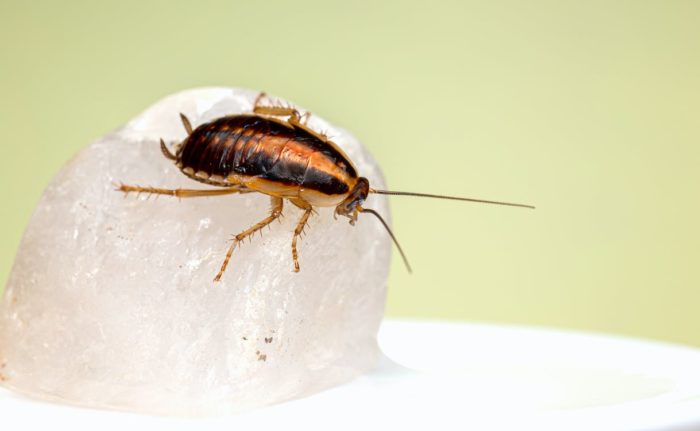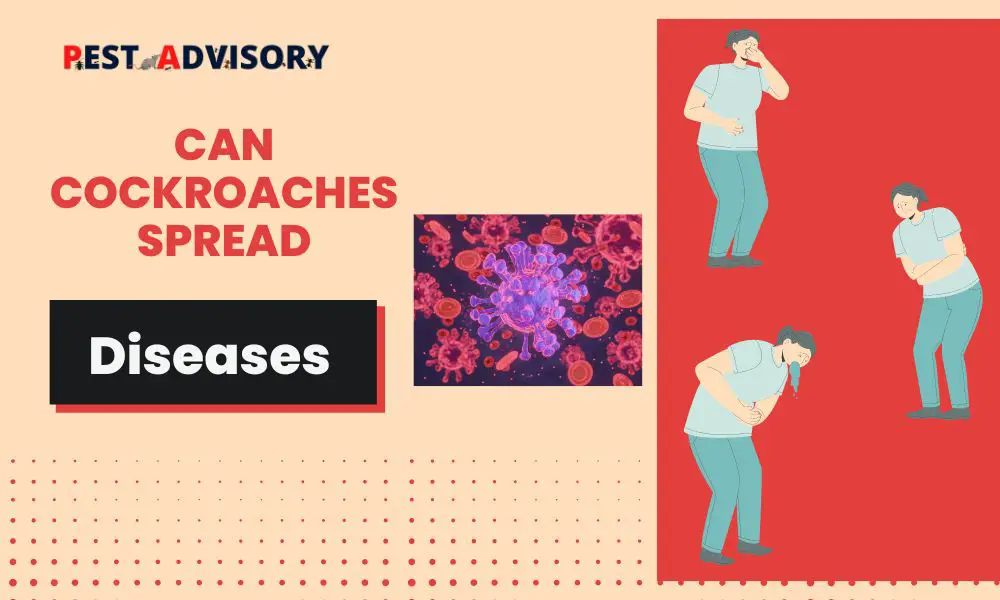Cockroaches are a common nuisance in most American homes. With their infamous habit of scurrying around in the dark and attacking your leftovers, roaches have become something we have learned to live with.
BUT roaches are not just harmless pests looking for shelter and food. They are also the carriers of serious diseases, which makes their immediate extermination very important.
Are Roaches Responsible for Spreading Diseases?
Synonymous with dirt and poor hygiene, roaches have a ravenous appetite and haphazard feeding pattern. Their insatiable hunger, coupled with their habit of nesting in humid, unsanitary crevices makes them the carriers of a wide range of pathogenic microorganisms.
Important Note: If you're tired of pests and want a reliable solution, then you should definitely consider seeking help from a professional pest control company. DIY solutions can be effective, but if you're dealing with a significant pest infestation, you don't want to rely solely on DIY methods. Pest control companies typically don't charge huge fees. You can fill out this form to receive free quotes from the top local pest control companies, and compare the quotes and see for yourself. Then, finally, your pest problems will be eliminated for good.
Roaches can be the hosts for various parasites, bacteria, fungi, and viruses on their bodies. This is a grave problem, considering they have open access to your house and often move around freely over your belongings.
Roaches have been known to contaminate food, appliances, and surfaces, leading to serious illnesses, various allergies, and steady deterioration of food. They are NOT just a health hazard, but also indirectly affect your finances by putting pressure on your medical bills and fumigation appointments.
Types of Diseases from Roaches
Cockroaches can carry a range of diseases. However, they are not direct vectors. Therefore, unlike mosquitos, roaches cannot spread malaria, chikungunya, or dengue. Transmission can ONLY occur indirectly, meaning roaches can only harm you if they come in direct contact with your intimate spaces.
Hence, from consumption or direct contact with items contaminated by cockroaches, you can become the prey to various diseases, and NOT from roach bites.
According to the World Health Organization, roaches only play a supplementary role in the spread of some diseases, unlike other vectors that introduce disease through bite or spit.
Cockroaches are suspected carriers of the organisms that cause the following diseases and infections:
- Cholera
- Campylobacteriosis
- Gastroenteritis
- Typhoid Fever
- Dysentery
- Salmonellosis
- Giardia
- Leprosy
Plus, many people develop extreme allergies when in contact with roaches, triggering asthma.
Roaches have also been noted as the no. 1 reason for spreading E. coli, which they pick up from feces and garbage, along with streptococcus and staphylococcus aureus.

How Do Roaches Spread Diseases?
So if roaches are hardly known to bite, how do they spread disease?
You can think of roaches as reservoirs for organisms to multiply. As they sit on your food or furniture, they simply transmit the organisms through their droppings and saliva.
- Droppings
Due to their unhygienic nesting habits and natural affinity to unsanitary food, cockroaches can transfer harmful pathogens through their feces.
Once the roach feasts on the contaminated matter, including garbage, a raw bit of chicken or animal droppings, bacteria, viruses, etc will enter into their gut and either rapidly multiply within them or lie dormant inside their digestive system.
The pathogen will then be released through their poop and simply contaminate the surroundings. Therefore, it is always advisable to routinely check your house for droppings, which are usually spotted behind drawers, inside leaky pipes, and under kitchen counters.
- Saliva
Cockroach spit is also a potent source of pathogenic activity. Their mouths are the first pints of entry for microorganisms, which can harbor accumulated microorganisms around them.
- Direct contact
Cockroaches prefer to burrow their nests in cesspits, sinks, drains, and garbage units, where they attract a wide range of organisms, such as bacteria and viruses.
Roach’s legs have spines that are extremely sticky and sensitive to pathogens, which provide a very large surface area for microorganisms to latch onto. Anything a cockroach brushes past may become contaminated, as the transfer of pathogen from its legs to the surface.
How Can You Catch a Disease from a Roach?
The most common way of getting an illness from roaches is through direct contact. This can include eating or drinking food contaminated with their saliva or feces or just inhaling the air contaminated with pathogens carried by roaches.
If the air in your room is exposed to proteins from cockroach feces or discarded skin and is consequently inhaled by people suffering from asthma, an attack can be triggered.
Final Words
So now you know the various dangers of allowing cockroaches to multiply in your home. Not only do they harm the aesthetics of your property, but also end up causing health and physical damage.
It is therefore advisable to act at the earliest when you discover a roach colony. No matter the scale of the infestation, it is best to start using roach cleaners, or directly hiring exterminators to avoid a larger headache in the future.

